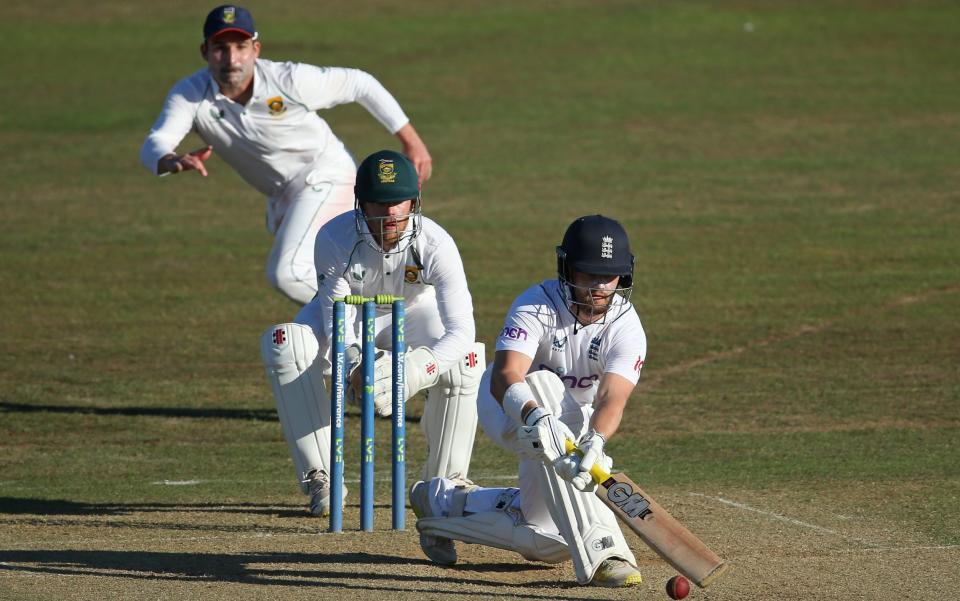The lure of international T20 leagues could harm England's red-ball future

It is not quite an international retirement, more like a conscious uncoupling. Trent Boult’s decision to relinquish his New Zealand central contract to create more time to play in Twenty20 leagues is another indication of how rapidly cricket’s landscape is changing.
The significance of the decision is magnified by the country and player involved. Compared to other countries from beyond the sport’s economic big three - Australia, England and India - New Zealand have largely been able to avoid losing players prematurely to the T20 circuit, a reflection of the board's pragmatism in allowing players to miss low-profile white-ball internationals to play in foreign leagues.
There can also be no questioning Boult’s desire to play Test cricket - during the latter stages of this year’s Indian Premier League, he practised bowling longer spells with a red ball to ready himself for the series in England, when he was New Zealand’s bowler of the series. And yet now there is every chance that he will not be seen in whites again.

No matter their greater wealth, England are not immune from these wider forces in the game. By the latest count, 18 England players have already signed up to the new T20 leagues launching in South Africa and the United Arab Emirates in January.
The rewards that England can afford to offer their leading players mean that, for now, it is unlikely that any of their major stars would withdraw from a national central contract as Boult has. But, already, a combination of England’s schedule and the allure of T20 leagues - with the Indian Premier League, and others, filling up time that could have otherwise been used to rest - mean that three-format England cricketers are going the way of the dodo. Jonny Bairstow is the sole England player who is both fit and commands a place in the first-choice international side in all three formats.
At this stage, perhaps T20 leagues present more of a threat to England’s future than their present. In the new year, England plan to undertake Lions tours of Sri Lanka and Bangladesh, giving their second-string a crucial chance to develop in subcontinental conditions, including in ‘Test’ matches against their hosts.
The question is who the Lions will have to pick from. Nine players who would otherwise be very strong contenders for a Lions first-class side - Will Jacks, Harry Brook, Sam Curran, Liam Livingstone, Dan Lawrence, Jamie Overton, James Vince, Saqib Mahmood and Ben Duckett - have all signed up to the leagues in South Africa or UAE. After those leagues, the T20 caravan will only carry on, with the Pakistan Super League - another competition in which English players are in high demand - in February.

And so potential Lions cricketers are left with a choice: if they want to play for the Lions, they effectively have to forego significant extra earnings in foreign leagues. These dynamics are disrupting England’s succession planning in the Test game: Liam Livingstone, for instance, was picked to tour New Zealand in 2018, has played just eight first-class games since the start of 2020, and none for 11 months.
England’s fear is that other potential Test players could follow a similar path, and so be left with scant time to work on their first-class game. Consider Duckett, who averages 72.3 in 11 first-class matches this year, and is a far more rounded batsman than when he played four Tests in 2016. But there is also a very real risk that, just at the moment that Test recognition is in sight, his first-class appearances become rarer. If Duckett excels in the UAE, then they could well win an IPL contract too.
In careers as short as professional sport, no blame can be attached to the players when market forces win out. And yet, with creative thinking, England have the tools to ensure that talented multi-format players can still develop in the red-ball game. The introduction of Lions contracts for England’s next-tier of red-ball cricketers - limiting players to say, two T20 overseas leagues a year - would encourage players like Duckett to advance their first-class games and give them greater financial security. Players on such deals could agree to, say, being fully available for one of the two Lions tours each year. Counties could also be encouraged to pay their Championship specialists more - the players that cannot top-up their earnings in the English off-season, but who England need to develop their red-ball depth.
Even as cricket’s sands are shifting, England still depend upon Test cricket for the bulk of their revenue. Funnelling this wealth down to the players bubbling underneath the Test team would help England develop the red-ball depth that they need to compete in all climes.

 Yahoo Sport
Yahoo Sport 





































